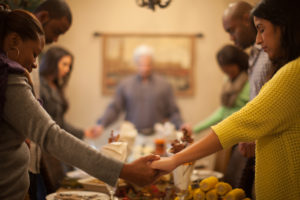Re:Verse passage –Exodus 20:14 (day one)
Join us as Associate Pastor Aaron Hufty and Associate Pastor Bryan Richardson walk us through Exodus 20:14 (the 7th Commandment) in our Summer Sermon Series: “Meant for More. A Study of Commandments.”
Daily Reflections from our Re:Verse Scripture
Re:Verse passage –Exodus 20:14 (day one)
Join us as Associate Pastor Aaron Hufty and Associate Pastor Bryan Richardson walk us through Exodus 20:14 (the 7th Commandment) in our Summer Sermon Series: “Meant for More. A Study of Commandments.”
Re:Verse passage –Exodus 20:13 (day seven)
All of us have faced the grave temptation to harbor hatred for another in our minds. At times we may find great joy indulging the flesh by imagining revenge and we can use that anger to fuel ourselves forward. But be warned by this passage from 1 John that notes the attitude of Christ in the believer:
Anyone who hates a brother or sister is a murderer, and you know that no murderer has eternal life residing in him.
This is how we know what love is: Jesus Christ laid down his life for us. And we ought to lay down our lives for our brothers and sisters. If anyone has material possessions and sees a brother or sister in need but has no pity on them, how can the love of God be in that person? Dear children, let us not love with words or speech but with actions and in truth.(1 John 3:15-18)
A follower of Jesus Christ does not take another’s life, they give their own on behalf of the other.
 Re:Verse passage –Exodus 20:13 (day six)
Re:Verse passage –Exodus 20:13 (day six)
What is the opposite of murder or kill? Create life? While we come close, we can’t create life in the same way God does (out of nothing). Perhaps, in the fullest understanding of the sixth commandment, the opposite of kill is harmonize, as in two distinct things brought together as if they were one.
When reading Jesus’ interpretation of the commandment, he clearly teaches that to fulfill it we must go to great lengths to pursue harmony with others. Or another way, if you want to avoid God’s judgment be a reconciler; ditch the angry heart, and sharp words, and do everything in your power to make things right, especially if you are the offender.
The spirit of this commandment isn’t just life, it’s harmony. Who are you out-of-sorts with? Jesus would recommend checking your heart, holding the sharp tongue, and go to them right away to pursue harmony.
Re:Verse passage –Exodus 20:13 (day five)
You shall not murder. It seems to be pretty simple and straightforward. So, why include it? Isn’t this a given by any moral code? Can anybody argue that the unlawful killing of an innocent life is ok? Don’t we all know at some level, killing is wrong?
The sixth commandment helps teach us about God, and ourselves. We learn about God’s sovereignty. As the creator and giver of life, He is sovereign over life and death. Killing someone displaces God from His throne and this role, and thus inserts the human murderer on the throne- Not where man was designed to be. God is serious about His sovereignty.
The sixth commandment is also a sincere affirmation and encouragement of human life. If humans were not important to God, then why have this commandment? In fact, this commandment serves as a compliment to the human race. Each personally and intricately created person has been made in God’s image. Each life is precious and significant.
This is why killing is a big deal to God. Lots at stake, lots to learn!
Re:Verse passage –Exodus 20:13 (day four)
In today’s society, we have approached this command with a very pharisaical mindset. We have looked at the direct text and considered ourselves free from guilt because we have never killed. We justify our sins because they are “little” in comparison to murder.
Murder is an extreme reaction to a preexistent, sinful heart condition. Cain murdered Abel out of jealousy. David had Uriah murdered to cover up his adultery. If you read the biblical accounts of murder, most of them began well in advance of the act itself. Jesus lays this out for us in Matthew 5:21-26 as He talks about the connection of anger and murder. These “little” sins such as anger, malice, or jealousy left to fester in our heart lead us into extreme reactions. This isn’t always murder. Though these extreme reactions are abhorrent sins in their own right, we would never have gotten to that place if we would have checked our heart condition and become repentant of the “little” sins that are disrupting our relationship with the Father.
Rick Henderson
Associate Pastor, Youth
Re:Verse passage –Exodus 20:13 (day three)
“Thou shalt not kill.”
The word translated “kill” is often—very often—translated “murder” instead. That makes it easier to digest. Who of us would murder someone? Of course, people do indeed commit murder, but that occurrence is, predominately, far-removed from all but the most violent strata of our society, and although arguments abound for the classification of abortion as murder, that’s not the legal reality in which we currently live. The broader word “kill”, though, which the original language would convey—what do you do with that? You might immediately envision exceptions to the commandment: capital punishment, warfare, etc. The problem is that exceptions tend to multiply. If you thought about exceptions in light of the commandments, though, instead of thinking about the commandments in light of exceptions, how would that change the way the you live, if at all?
Re:Verse passage – Exodus 20:13 (day two) You shall not murder.
This negative command is intended to establish a clear directive regarding the sanctity of life. We are not to take a life, but there is so much more inferred in this command. We should NOT murder, but what SHOULD we do. If we look further into scripture with the command to “love our neighbor as ourselves” it gives a clear indication of how we are to interact with each other. This command does not say you can get to the point of taking a life and then stop, no it implies that if we treat each other as image bearers of our Creator our interactions will be much more fruitful. As you look at the days ahead don’t just reach for the low-hanging fruit. Don’t murder….yes, but go further. Treat your neighbor as a fellow journeyman to Jesus. It will certainly change the narrative.
Re:Verse passage – Exodus 20:13 (day one)
Join us as Associate Pastor Aaron Hufty and Associate Pastor Bryan Richardson walk us through Exodus 20:13 (the 6th Commandment) in our Summer Sermon Series: “Meant for More. A Study of Commandments.”
Re:Verse passage – Exodus 20:12 (day seven)
“Honor your father and your mother, that your days may be prolonged in the land which the Lord your God gives you.
When discussing true discipleship Jesus said, “If anyone comes to Me, and does not hate his own father and mother and wife and children and brothers and sisters, yes, and even his own life, he cannot be My disciple.” (Luke 14:26 & Mt 10:37)
and on His own family He said, “A crowd was sitting around Him, and they said to Him, “Behold, Your mother and Your brothers are outside looking for You.” Answering them, He said, “Who are My mother and My brothers?” Looking about at those who were sitting around Him, He said, “Behold My mother and My brothers! For whoever does the will of God, he is My brother and sister and mother.” (Mark 3:32-35)
Family comes with a footnote. Your family IS eternally important, but they never come before God nor come before the 1st or 2nd commandment.
 Re:Verse passage –Exodus 20:12 (day six)
Re:Verse passage –Exodus 20:12 (day six)
“Honor your father and your mother, that your days may be prolonged in the land which the LORD your God gives you.”
The command is simple enough. We know it refers to all of us, not just our toddlers and teenagers. We know it rightly elevates the role of family in society. We even know what it means to “honor” our parents. And yet how often it is easily dismissed, forgotten, or simply replaced.
Jesus had strong words for the Pharisees when their traditions trumped the commandments. In the case of this commandment, the Pharisees allowed the tradition of a designated gift to the temple (corban, Mark 7:9-13) to alleviate any pressure to financially take care of elderly parents. Jesus said, “You create traditions, so as not to obey God’s commandment.” It got me thinking, what traditions keep us from honoring our parents? What traditions, even in the church, have disrupted God’s design for the family?
We probably would greatly benefit by giving that serious thought.